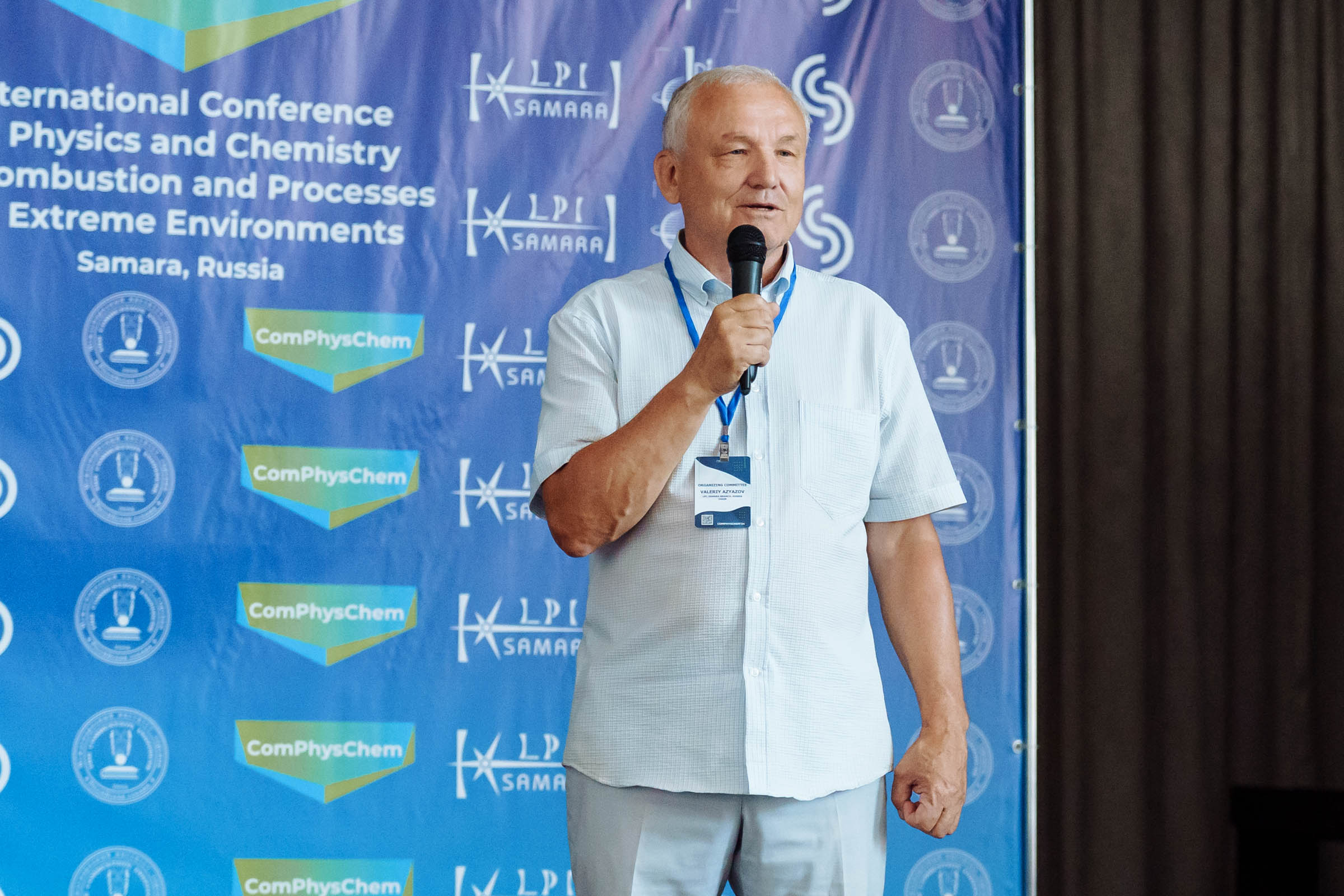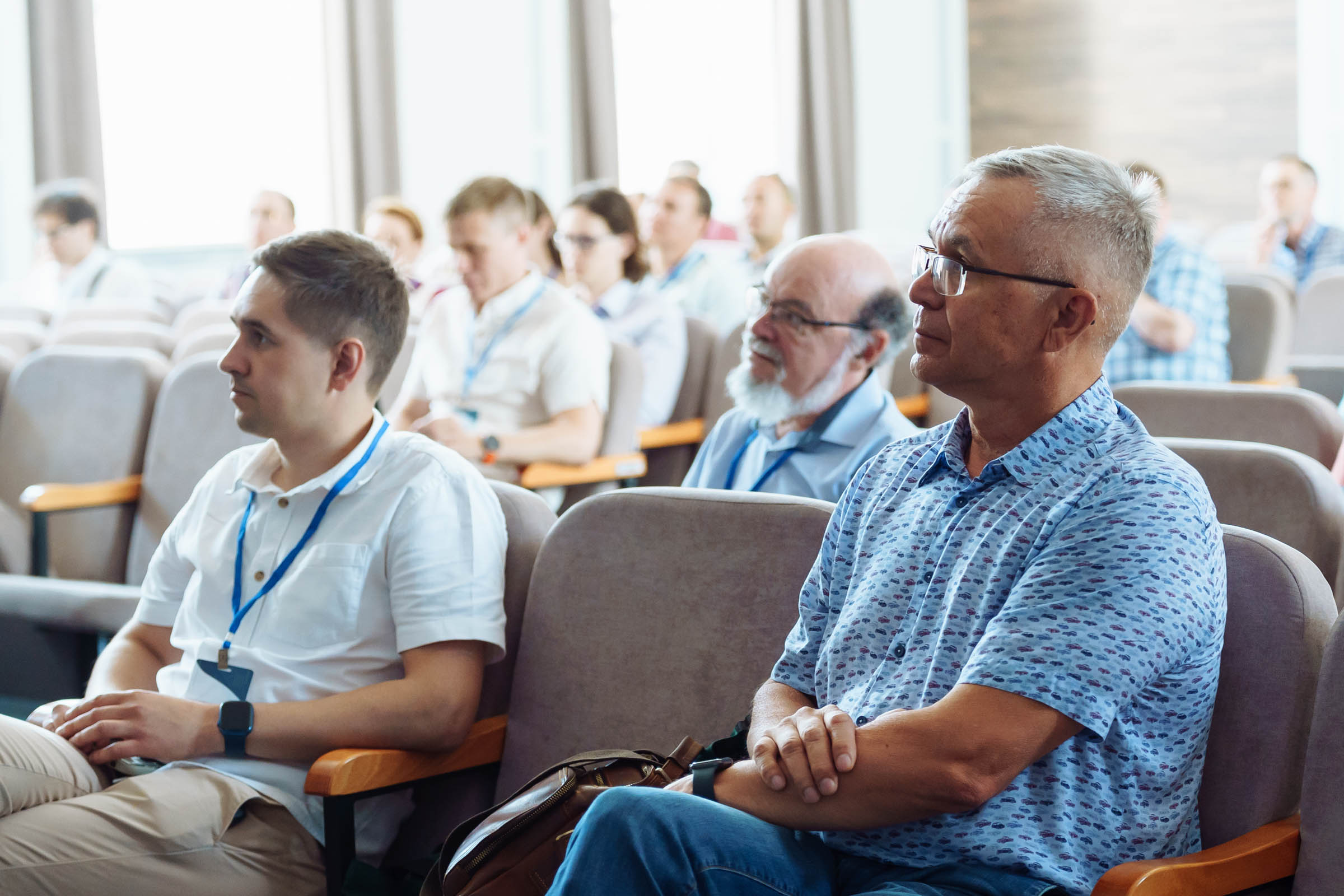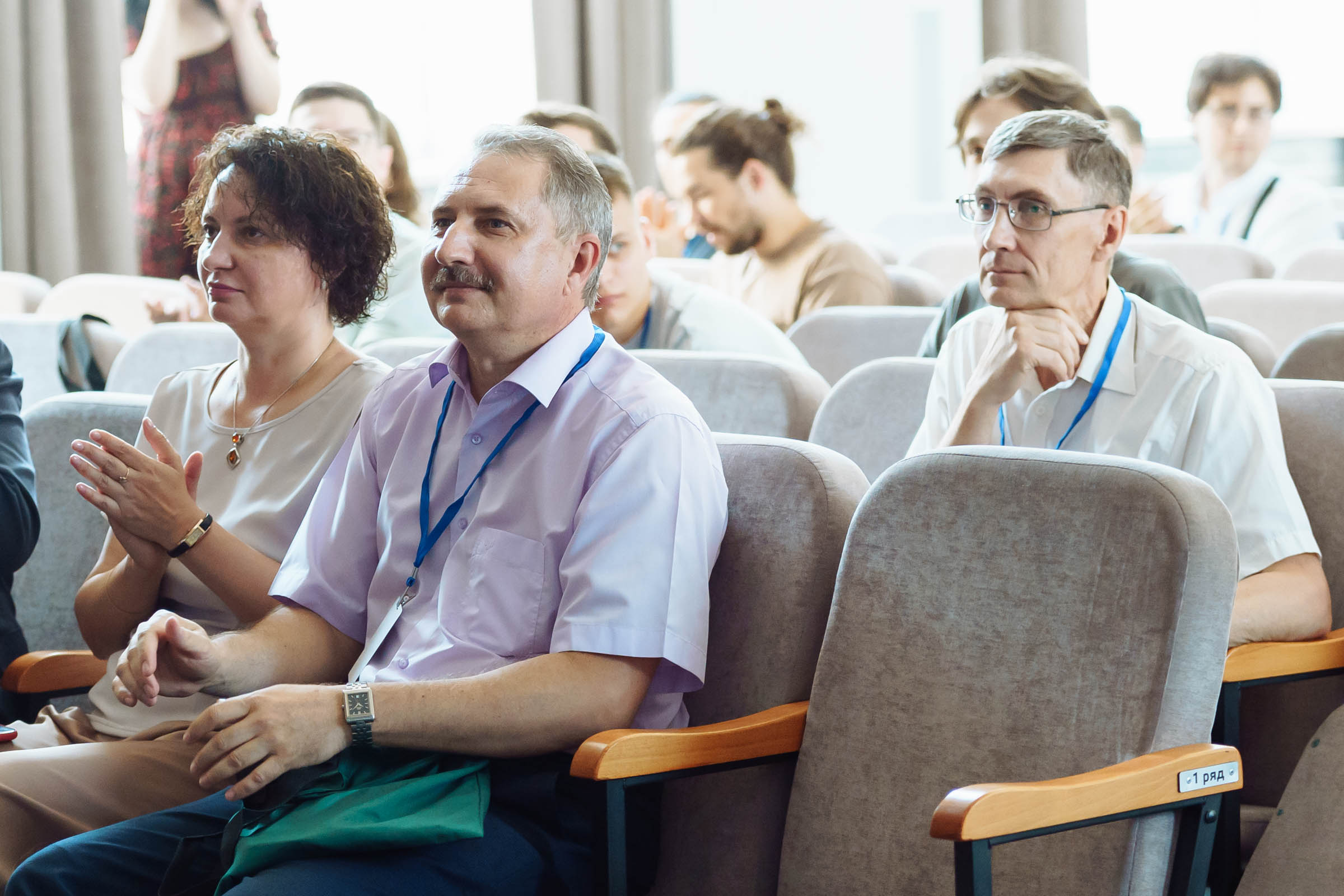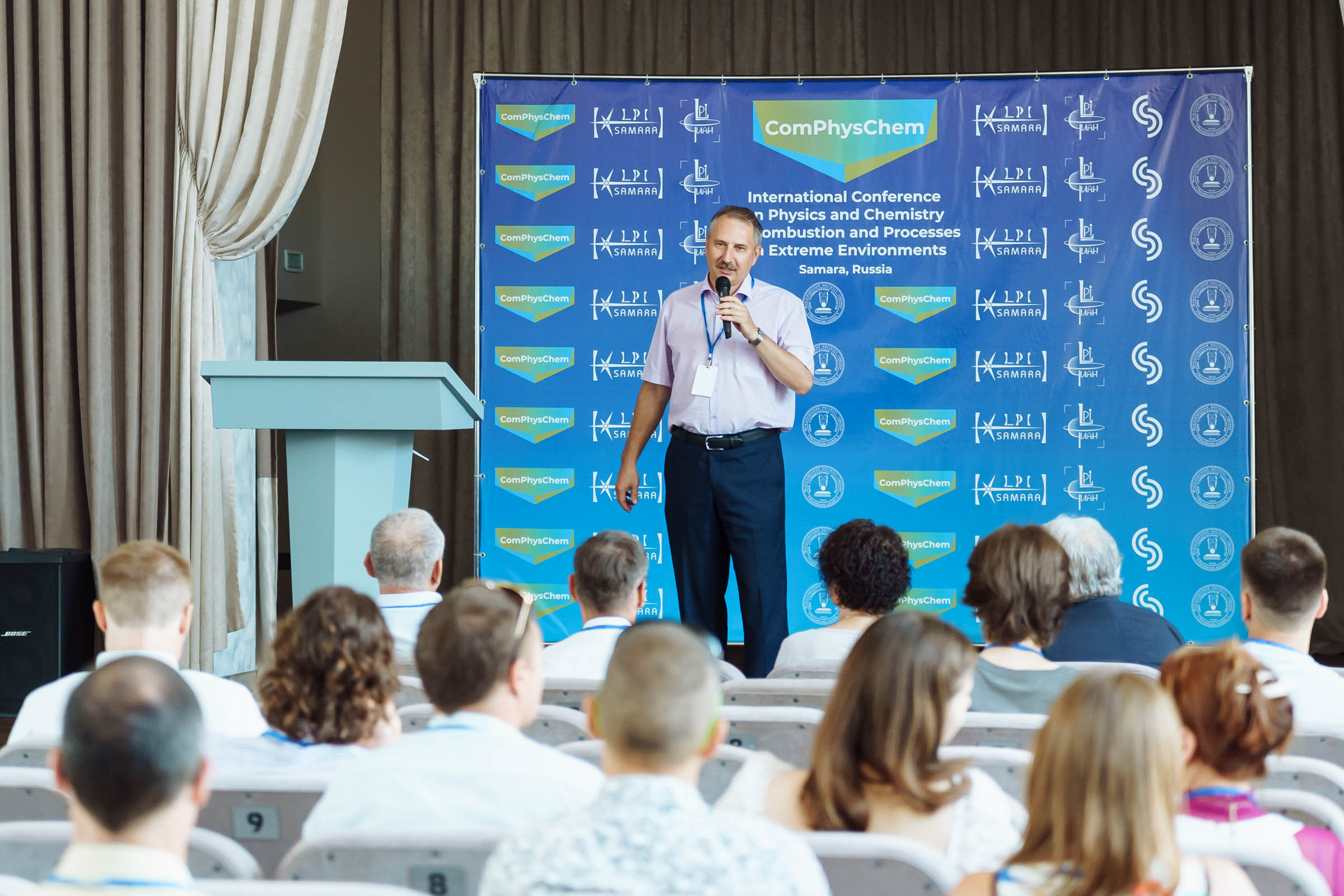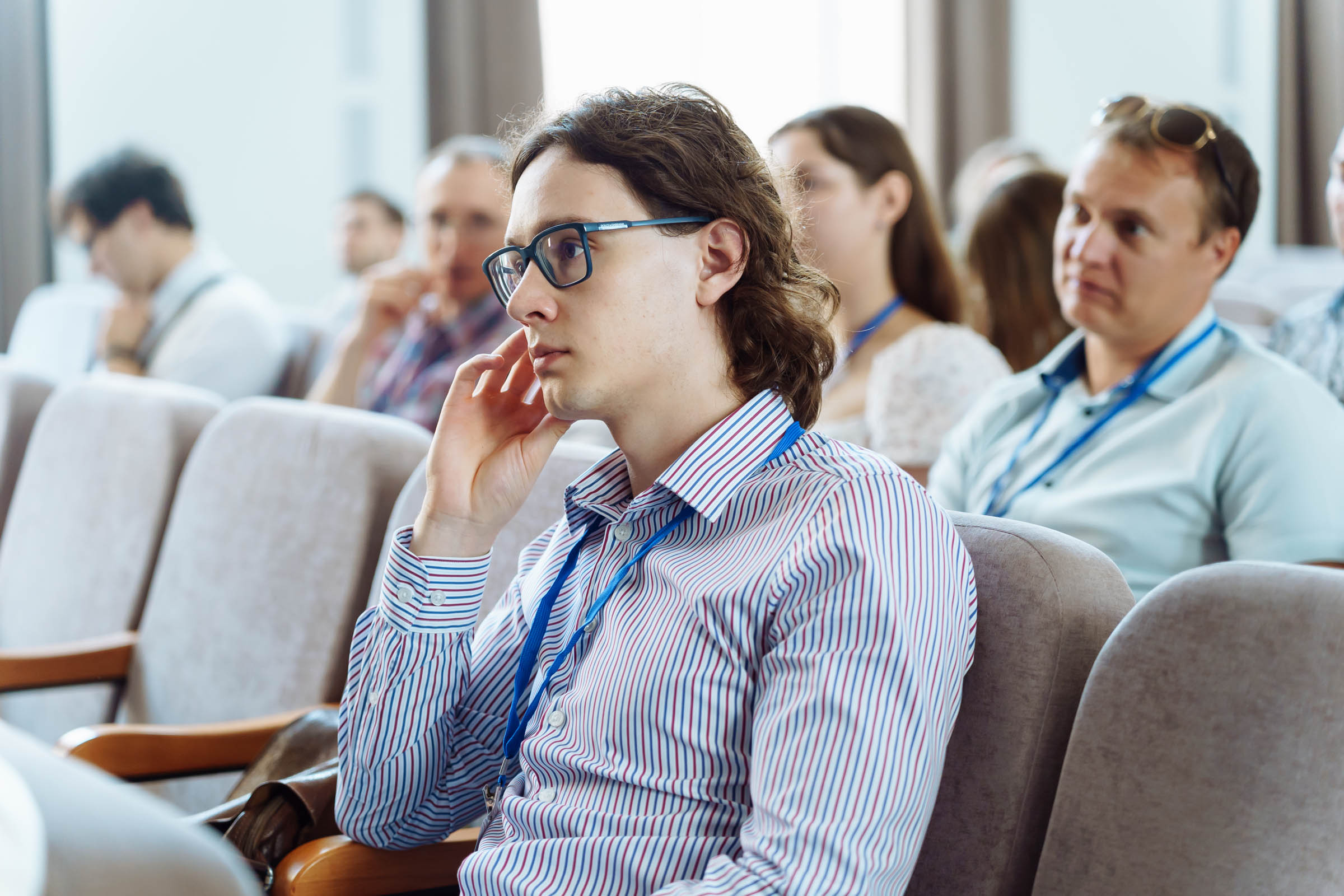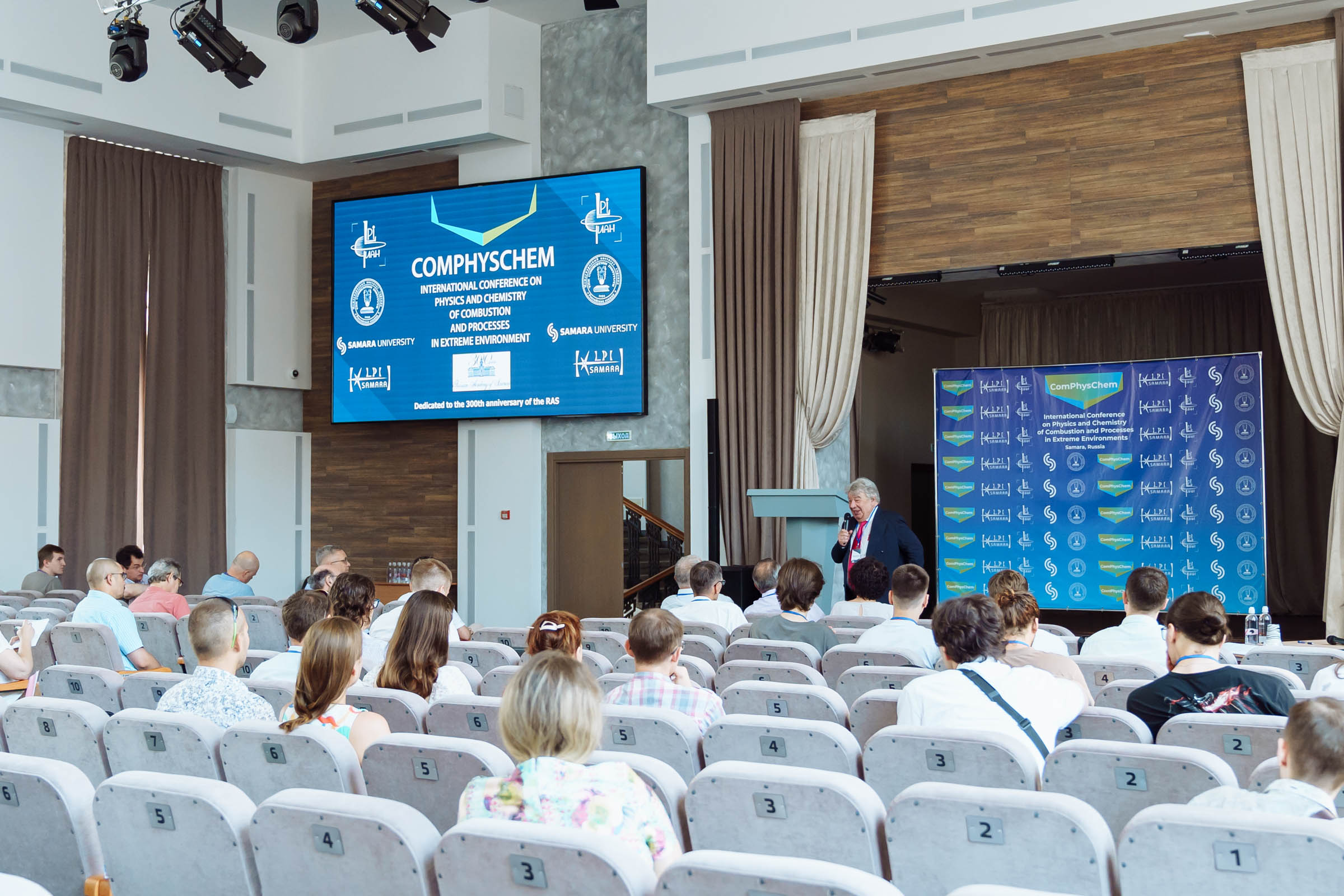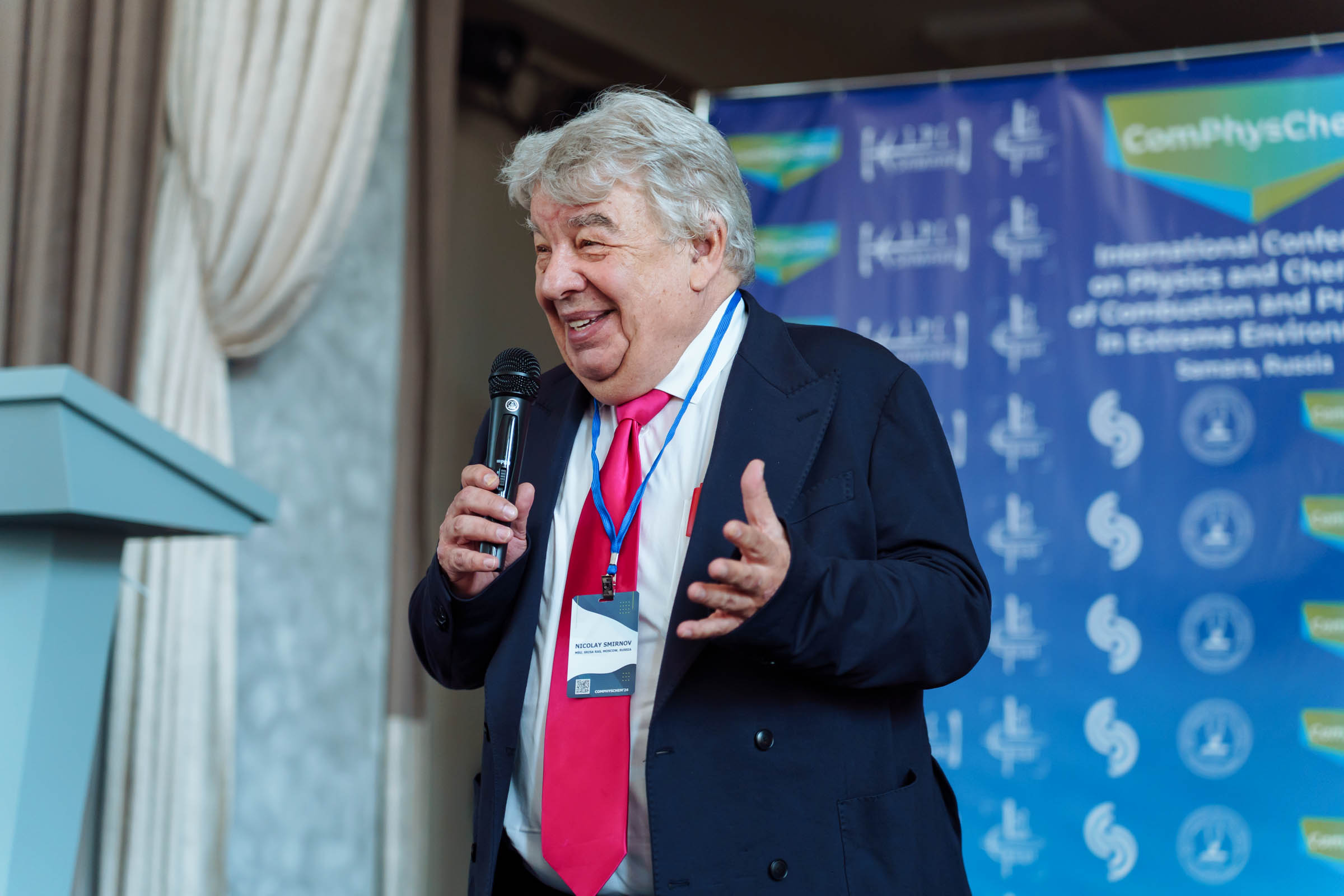The 3rd International Conference on Physics and Chemistry of Combustion and Processes in Extreme Environments (ComPhysChem’24) took place at the Samara National Research University from July 2 to 5. It was organized jointly by our University and the Samara Branch of the Lebedev Physical Institute of Russian Academy of Sciences (LPI RAS). The head of the Organizing Committee is the Director of the Samara Branch of the LPI RAS, Professor of the Department of Physics of Samara University Valery Azyazov.
Over one hundred participants gathered for the Conference. Over 60 scientists from 13 cities of Russia, with Moscow, St. Petersburg, Novosibirsk, Tomsk, Yekaterinburg and a number of others among them, represented domestic academic centers where they study fundamental physical and chemical processes in extreme conditions. Samara University was represented by 18 employees, postgraduate students and students, the team of the Samara Branch of the LPI RAS included 22 specialists.
The leading foreign experts in the processes of combustion from the UK, Germany, Iran, China, the US and Chile spoke online. There were 7 plenary, 12 invited, 25 oral and 40 workshop reports presented.
Valery Azyazov reminded that it was Professor Alexander Mebel who had suggested to organize the annual conference on the topic of combustion. The idea put forward by him when he had been working on a megagrant at the scientific-research Physics and Chemistry of Combustion laboratory of Samara University proved fruitful and was implemented.
Andrey Prokofyev, the First Vice-Rector – Vice-Rector for Research Work at Samara University, mentioned that many academic groups organize conferences on their subjects, but not everyone manages to conduct them regularly. He emphasized three conditions for the success of such events: driver of the process – interest of the academic community – high level of organization.
According to Andrey Prokofyev, “Mathematicians would say that each of these conditions taken separately is necessary but it is not enough. Their aggregate makes the Conference successful. In case of the ‘Physics and Chemistry of Combustion’ all these conditions are met”.
“There are many young people among the participants of the Conference. I would like very much for the energy, ardor coming from you, dear colleagues, to transfer to young people”, Anastasia Grisyak, Director of the Institute of Natural Science of Samara University, addressed the organizers of the Conference. “According to ancient wisdom, a student is not a jar to be filled with knowledge but a torch to be lighted. I’d like students to light as well following your example, for them to be interested in science and get good results in this field of physics that is very diverse and interesting”, Professor Grisyak underlined.
The topics of the reports at the Conference are wide-ranging: from kinetics and dynamics of processes taking place in vacuum in the interstellar environment to studying and modeling combustion reactions under high pressure and temperatures and environmental problems related to combustion. There are experts in quantum chemistry, astrochemistry and astrophysics on the one flank and representatives of engineering courses of study on the other. The team of the venue hosts presented results of both fundamental and applied research.
In particular, Ivan Antonov, associate professor at the Department of Physics of Samara University, senior research fellow at the Samara Branch of LPI RAS, presented his report “The Latest Achievements in Creating an Instrument for Cryogenic Surface Processes: Chemistry of Interstellar Methane Ice”. The scientist told about the research launched in 2024 on the first in Russia experimental plant where the conditions of deep space are reproduced and the mechanisms of life origination on the Earth are studied. This work is carried out supervised by Valery Azyazov.
Professor Azyazov’s postgraduate student, laboratory assistant-researcher Oleg Kuznetsov shared the results of experiments at the plant for studying the reaction dynamics and kinetics of combustion processes that is one of the biggest in the world. It was launched in the Physics and Chemistry of Combustion laboratory of Samara University in 2021. This research is also fundamental.
The report by Sergey Matveev, Professor of the Department of Thermal Engineering and Thermal Engines of Samara University, is dedicated to the numerical and experimental research of the processes of nitrogen oxides production during hydrogen combustion in a model combustion chamber. This is an applied work.
“The fundamental experiments of our Physics and Chemistry of Combustion laboratory and applied research of our scientific and educational of Gas Dynamic Research Center (SEC GDR) that deals with the processes in combustion chambers of aircraft engines, are dedicated to solving interconnected academic tasks. The experts from this center used the obtained fundamental academic results, directly participating in the creation of combustion chambers for promising aircraft engines PD-14, PD-8 and a number of other power plants. It is a wonderful example of moving from fundamental sciences to applied research and practical implementation as certain samples of technological products. I’d like to have more examples like that”, Andrey Prokofyev emphasized.
In 2024, solar physics was for the first time included in the topics of the Conference. Two reports by the representatives of the Samara academic school were dedicated to wave processes and oscillations in solar, stellar and interstellar plasmas. Research in this field is carried out supervised by Professor of the Department of Physics of Samara University Nonna Molevich.
Dmitry Zavershinsky, acting head of the Department of Physics of Samara University, senior research fellow at the LPI RAS, presented his report “The Dynamics of Slow Magnetoacoustic and Entropic Modes in Flash Coronal Loops”. The topic of the report by Dmitry Ryashchikov, associate professor of the Department of Physics of Samara University, senior research fellow at the LPI RAS is “The Special Features of Acoustic-Gravity Waves Propagation in the Environment with Thermal Imbalance”.
The proceedings of the Conference will be published.
For reference:
The main topics of the 3rd International Conference on Physics and Chemistry of Combustion and Processes in Extreme Environments:
- Fundamental physical and chemical processes in extreme conditions.
- Reaction kinetics and dynamics in extreme conditions, including astrochemistry and astrobiology.
- Quantum chemical studies of potential energy surfaces of chemical reactions.
- Kinetics and dynamics of elementary processes.
- Waves and oscillations in solar, stellar and interstellar plasmas.
- Mathematical modeling of processes in extreme conditions.
- Laser and optical diagnostics of processes in combustion.
- Chemical, plasma and laser initiation of combustion.
- Formation and destruction of PAH, soot, grapheme, and carbonaceous nanoparticles.
- Environmental issues related to combustion.
 RU
RU  EN
EN  CN
CN  ES
ES 
